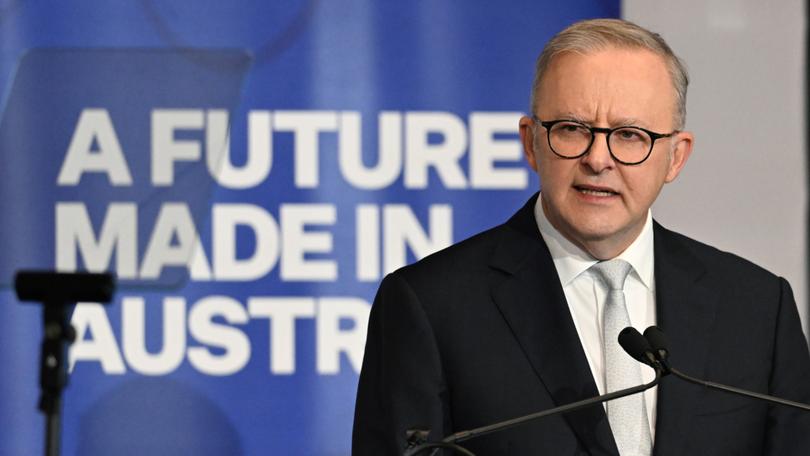Productivity Commission bosses line up behind chair Danielle Wood in warning on Albo’s Made in Australia Act
Former Productivity Commission bosses have lined up behind chair Danielle Wood to warn the Federal Government’s new green industry policy could backfire and become an economic dead weight.

Former Productivity Commission bosses have lined up behind chair Danielle Wood to warn the Federal Government’s new green industry policy could backfire and become an economic dead weight.
Prime Minister Anthony Albanese this week pledged a new wave of industry intervention to push the local economy towards manufacturing, badged as the Future Made in Australia Act.
Further details are set to emerge ahead of the May budget but Mr Albanese touted the Hydrogen Headstart and SunShot solar manufacturing programs as examples of his direction.
Sign up to The Nightly's newsletters.
Get the first look at the digital newspaper, curated daily stories and breaking headlines delivered to your inbox.
By continuing you agree to our Terms and Privacy Policy.But Productivity Commission chair Danielle Wood was quick to warn the policy could backfire.
Ms Wood reportedly said the Government risked creating a class of businesses reliant on subsidies. The interventions would also redirect workers and capital away from more viable industries.
On Friday, former commission chair Peter Harris reportedly told the Australian Financial Review that governments had a history of failure from interventions.
Bill Scales — who led the Industry Commission in the nineties — also reportedly backed in Ms Wood. He said the government’s policy would “reallocate resources . . . to the most inefficient sectors and the most immature sectors” of the economy.
Prime Minister Anthony Albanese sought to pre-ermpt and blunt criticism that the policy was protectionist, arguing the move instead reflected “a new competition”.
But the Commission — a high-powered office independent of government — has long been concerned about the growing level of intervention in the past decade.
That has included a series of new funds to bet taxpayer cash on industries including critical minerals.
The Commission’s most recent trade and assistance review, released last year, showed industry assistance had rocketed to a whopping $14 billion a year.
“The world’s largest economies are increasingly engaged in policies to favour selected domestic industries through subsidies, local content rules and trade barriers,” the commission said.
“In many cases this is simply a form of old-fashioned protectionism.”
